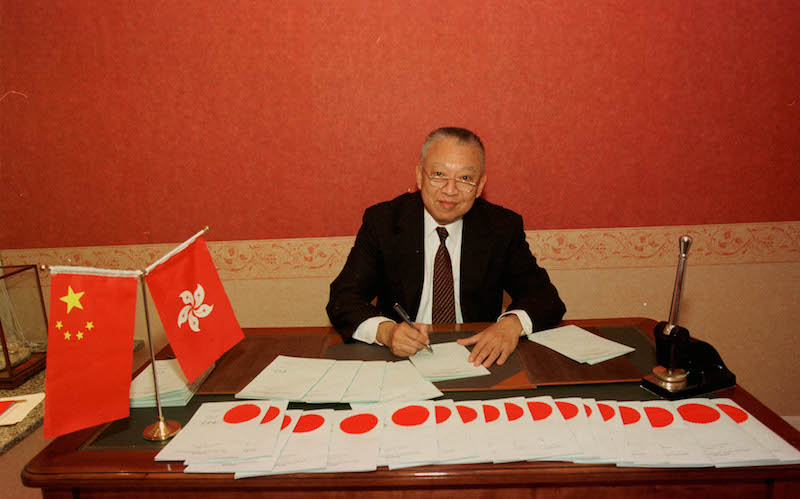Former chief executive Tung Chee-hwa has hailed the Chinese model of democracy, while warning that competitive elections could lead to political instability and separatism.
“We are not denying the importance of democracy, but we are definitely wrong if we consider competitive elections to be a main – or the only – component of democracy,” he said on Monday.
“If competitions become politicised – coupled with a lack of common beliefs and national consciousness in society – competitive elections will very likely turn into conflicts among tribes, races, religions and ethnic groups, or between the rich and the poor. They will eventually lead to clashes among various camps and even separation of the country.”

Tung made the remarks at a forum on Chinese political development, organised by his think tank Our Hong Kong Foundation.
China compared to the world
In his speech, titled “China’s successful governance model,” Tung said a governance system should be modeled in light of the people’s needs and the socio-economic conditions of a country at any one time. It should also be tailored to the history and culture of a country.
He compared China to India, saying that although the two countries began developing in the 1980s, China’s GDP now exceeds that of India by five times. He emphasised that India had adopted the Western model of parliamentary democracy.
The ex-leader added that democracy and social justice movements in northern Africa since 2010 had resulted in civil wars, terrorism and migrant crises. “Things didn’t turn out as well as people had imagined,” he said.

Tung listed China’s achievements in space technology, which he said indicated that the country has “upgraded” from being a manufacturer giant to being a leader in innovation and technology. He added that Chinese economic initiatives have been well-received internationally, reflecting “China’s strength and influence on the world stage.”
Chinese democracy
Praising China’s political model, Tung said China must “create its own democratic system” in order to meet the needs of contemporary society. He said a major achievement of China is its ability to promote democratic development while maintaining social stability.
“No matter what standards you use, this is an impressive accomplishment,” Tung said.
He added that China’s two top organs – the National People’s Congress and the Chinese People’s Political Consultative Conference – have established “electoral democracy” and “consultative democracy” respectively.
“They have incorporated the voices of the people and helped China strengthen its rule of law and democracy,” he said. “The Chinese government has become more open and transparent, while being subjected to a stricter system of checks and balances.”

Tung said China would continue learning from the experiences of other countries: “Chinese people are a tolerant, diverse people. It learns from others their strengths and then converts them into our own.”
Describing Hong Kong and China as “sharing the same destiny,” Tung urged young people in Hong Kong to learn more about China.
Tung, the son of a Chinese shipping magnate, was the first chief executive of Hong Kong. During his term, mass demonstrations broke out in 2003 in response to the government’s push for the legislation of the Article 23 security law. His reputation continued to suffer owing to more governance controversies. Tung eventually resigned in 2005 – citing “health problems” – before his second term expired.
He is the vice chair of China’s top political advisory body, the National Committee of the Chinese People’s Political Consultative Conference.
